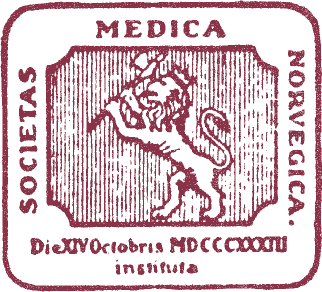Lessons from history? Infectious diseases, their impact on society and their control
Michael 2010;7:293–5.
Friedrich Schiller (1759–1805), the famous German poet, playwright and radical in the last decade of the 18th century had to earn his living as a professor in history. Delivering his inaugural lecture in 1789, he gave a quintessential definition on what there is to learn from history. For Schiller, being a typical proponent of the historiography of enlightenment and often making moral points as an author, there was a lot to learn: ‘Fruitful and vastly comprehensive is the realm of history; its space encompasses the entire moral universe’(1).
While professional historians have done a lot since the 19th century to dilute or even openly deny notions of history as a moral example, such ideas have none the less proven difficult to uproot. While those who write history professionally usually are ehavior as to whether lessons from history can be drawn, their audiences would often adhere to such ideas. The popularity of certain historical subjects seems to rest on the expectation that their study harbours lessons for the living.
Medical history and in particular the history of infectious disease provide ample examples of such ideas. When reading classics like Winslow’s The conquest of epidemic disease (2), Zinsser’s Rats, lice and history (3) or DeKruif ‘s Microbe hunters (4), it is hard not to come to the conclusion that the very essence of medical history is a technologically aided conquest of nature by man.
The main topic in this issue of Michael Quarterly deals with the history of infectious disease. Each of these articles offers in their own way some criticism of the above sketched moral tale. The history of leprosy that Lorenz Irgens addresses in his paper (5), was in many ways one that put the nascent Norwegian nation on the map of 19th century medical history. Those who studied and combated the disease, did so in order to transform a disadvantage into a sign of distinction: Norway, seen from this angle, was not just a country that suffered badly from leprosy, but also a suitable place to study and control that infection.
Alfons Labisch’s paper on malaria eradication in Dutch East-India (6) provides and ehaviorio that 19th century hopes of a extermination of infectious disease on the globe became subjected to a process of erosion and disillusionment during the 20th century. Over decades medical science provided a multitude of means to combat malaria or its vector, the anopheles fly. Yet victory, that is the disappearance of the disease, has so far remained elusive. To draw lessons from history in relation to the efficacy of species assassination as an approach to combat malaria, is tempting. Yet to those who venture into this, Alfons Labisch gives some sobering advice: ‘it is doubtful if the use of historic concepts could provide a solution to the current medical problems, at least in this naïve and optimistic version.’
Finally, Ida Blom’s historical comparison of approaches to the control of venereal diseases in Denmark and Norway (7) provides the insight that even those examples that could have been related to, in fact are often ignored: The battles that early 20th century doctors and activists fought against the moral stigma on sexually transmitted diseases and in favour of a medicalisation of the issue, could have served as a lesson for the future. However, when hiv/aids began to be considered a threat to individual and public health in the 1980s, this did not happen. The separation of guilt and suffering that had been at the basis of medicalisation of syphilis before World War One, was forgotten when aids arrived and had to be learnt anew.
So, going back to Schiller’s emphatic praise of the study of history as a moral education, the empirical observations in the cases studied here are quite sobering. Even if there would be lessons to be learnt from history, the instance remains that they still could be – and in fact often are – ignored.
Literature
Schiller F. Was heißt und zu welchem Ende studiert man Universalgeschichte? In: Hardtwig W. (ed.) ?ber das Studium der Geschichte, München: dtv, 1990, pp.18–36, quote from p. 20.
Winslow CEA. The conquest of epidemic disease, a chapter in the history of ideas. New York: University of Wisconsin Press, 1967.
Zinsser H, Grob GN. Rats, lice and history; with a new introduction by Gerald N. Grob. New Brunswick NJ: Transaction Publishers, 2007.
DeKruif P. Microbe hunters. London: J. Cape, 1927.
Irgens LM. The fight against leprosy in Norway in the 19th century. Michael 2010;7:307–20.
Labisch A. Species sanitation of malaria in the Netherlands East Indies (1913–1942) – an example of applied medical history? Michael 2010;7:296–306.
Blom I. Medicine and morality – legislation on venereal diseases in Denmark and Norway c. 1900–1994. Michael 2010;7:321–30.
professor of medical history
University of Oslo
Institute of health and society
christoph.gradmann@medisin.uio.no
